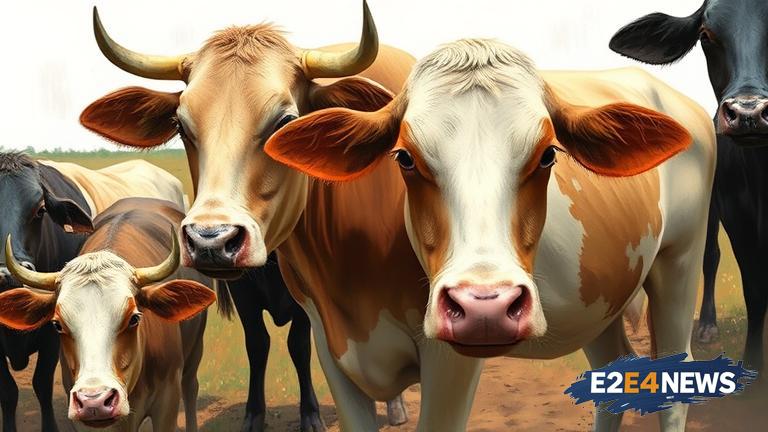The HHS has announced the detection of the first case of flesh-eating screwworm in the US, specifically in Texas cattle. This parasitic infestation, caused by the Cochliomyia hominivorax fly, is typically found in Central and South America. The screwworm is known to feed on the flesh of warm-blooded animals, including cattle, and can cause significant damage to the livestock industry. Texas Governor Greg Abbott has been informed of the situation and is working closely with state and federal authorities to contain the outbreak. The HHS has confirmed that the infected cattle are being treated and quarantined to prevent further spread of the disease. The US Department of Agriculture (USDA) is also involved in the efforts to eradicate the screwworm. The USDA has implemented strict protocols to prevent the introduction of the screwworm into the US, including the inspection of animals and products imported from affected countries. However, the detection of the screwworm in Texas cattle highlights the need for continued vigilance and cooperation between state and federal agencies. The flesh-eating screwworm is a significant threat to the livestock industry, and its presence in the US could have devastating consequences. The HHS and USDA are working together to develop a comprehensive plan to eradicate the screwworm and prevent its spread. This includes the use of insecticides, as well as the implementation of strict biosecurity measures. The Texas cattle industry is a significant contributor to the state’s economy, and the detection of the screwworm has raised concerns among ranchers and farmers. The HHS has assured the public that the risk to human health is low, but the economic impact of the outbreak could be significant. The USDA has estimated that the screwworm could cost the US livestock industry millions of dollars in losses if left unchecked. The detection of the screwworm in Texas cattle is a reminder of the importance of continued surveillance and monitoring of animal diseases. The HHS and USDA are urging farmers and ranchers to report any suspicious cases of animal illness or death to the authorities immediately. The flesh-eating screwworm is a serious disease that requires prompt attention and action to prevent its spread. The US is working closely with international partners to share information and best practices in the fight against the screwworm. The HHS has confirmed that the infected cattle are being treated with a specialized medication to kill the screwworm larvae. The USDA is also providing guidance to farmers and ranchers on how to prevent the introduction of the screwworm into their herds. The detection of the screwworm in Texas cattle has raised concerns over the potential for the disease to spread to other states. The HHS and USDA are working together to develop a plan to prevent the spread of the disease and protect the US livestock industry. The flesh-eating screwworm is a significant threat to animal health and the economy, and its detection in Texas cattle highlights the need for continued vigilance and cooperation between state and federal agencies.
